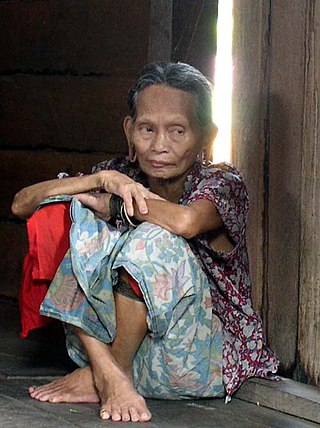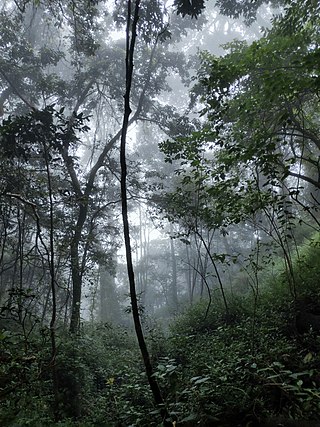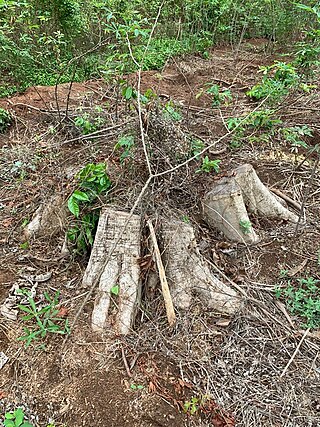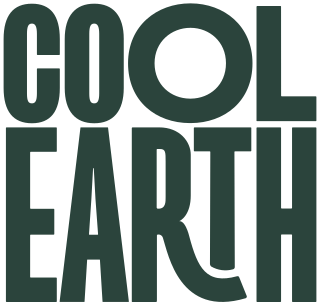
Deforestation or forest clearance is the removal and destruction of a forest or stand of trees from land that is then converted to non-forest use. Deforestation can involve conversion of forest land to farms, ranches, or urban use. About 31% of Earth's land surface is covered by forests at present. This is one-third less than the forest cover before the expansion of agriculture, with half of that loss occurring in the last century. Between 15 million to 18 million hectares of forest, an area the size of Bangladesh, are destroyed every year. On average 2,400 trees are cut down each minute. Estimates vary widely as to the extent of deforestation in the tropics. In 2019, nearly a third of the overall tree cover loss, or 3.8 million hectares, occurred within humid tropical primary forests. These are areas of mature rainforest that are especially important for biodiversity and carbon storage.

Reforestation is the practice of restoring previously existing forests and woodlands that have been destroyed or damaged. The prior forest destruction might have happened through deforestation, clearcutting or wildfires. Three important purposes of reforestation programs are for harvesting of wood, for climate change mitigation, and for ecosystem and habitat restoration purposes. One method of reforestation is to establish tree plantations, also called plantation forests. They cover about 131 million ha worldwide, which is 3% of the global forest area and 45% of the total area of planted forests.

Forest Peoples Programme (FPP) advocates an alternative vision of how forests should be managed and controlled, based on respect for the rights of the people who know them best. FPP works with forest peoples in South America, Africa, and Asia, to help them secure their rights, build up their own organisations and negotiate with governments and companies as to how economic development and conservation are the best achieved on their lands.

The exploitation of natural resources describes using natural resources, often non-renewable or limited, for economic growth or development. Environmental degradation, human insecurity, and social conflict frequently accompany natural resource exploitation. The impacts of the depletion of natural resources include the decline of economic growth in local areas; however, the abundance of natural resources does not always correlate with a country's material prosperity. Many resource-rich countries, especially in the Global South, face distributional conflicts, where local bureaucracies mismanage or disagree on how resources should be used. Foreign industries also contribute to resource exploitation, where raw materials are outsourced from developing countries, with the local communities receiving little profit from the exchange. This is often accompanied by negative effects of economic growth around the affected areas such as inequality and pollution
The Green Belt Movement (GBM) is an indigenous grassroots organization in Kenya that empowers women through the planting of trees. It is one of the most effective and well-known grassroots organisations addressing the problem of global deforestation. Professor Wangari Maathai established the organization in 1977 under the auspices of the National Council of Women of Kenya (NCWK). GBM's successes in forest conservation, education, and women's economic empowerment have gained the organisation worldwide acclaim. It is also noted for its advocacy of human rights, democratisation of access to public lands, and environmental justice issues such as the role of women's traditional ecological knowledge in addressing environmental degradation and desertification.

The Penan are a nomadic indigenous people living in Sarawak and Brunei, although there is only one small community in Brunei; among those in Brunei half have been converted to Islam, even if only superficially. Penan are one of the last such peoples remaining as hunters and gatherers. The Penan are noted for their practice of 'molong' which means never taking more than necessary. Most Penan were nomadic hunter-gatherers until the post-World War II missionaries settled many of the Penan, mainly in the Ulu-Baram district but also in the Limbang district. They eat plants, which are also used as medicines, and animals and use the hides, skin, fur, and other parts for clothing and shelter.

Environmentalism or environmental rights is a broad philosophy, ideology, and social movement about supporting life, habitats, and surroundings. While environmentalism focuses more on the environmental and nature-related aspects of green ideology and politics, ecologism combines the ideology of social ecology and environmentalism. Ecologism is more commonly used in continental European languages, while environmentalism is more commonly used in English but the words have slightly different connotations.
Size of Wales is a climate change charity founded with the aim of conserving an area of tropical rainforest the size of Wales. The project currently supports seven forest protection projects and one tree planting project across Africa and South America. The charity focuses upon furthering the promotion of rainforest conservation as a national response to the global issue of climate change.

Forest management is a branch of forestry concerned with overall administrative, legal, economic, and social aspects, as well as scientific and technical aspects, such as silviculture, forest protection, and forest regulation. This includes management for timber, aesthetics, recreation, urban values, water, wildlife, inland and nearshore fisheries, wood products, plant genetic resources, and other forest resource values. Management objectives can be for conservation, utilisation, or a mixture of the two. Techniques include timber extraction, planting and replanting of different species, building and maintenance of roads and pathways through forests, and preventing fire.

Fern is a Dutch foundation created in 1995. It is an international Non-Governmental Organization (NGO) set up to keep track of the European Union's (EU) involvement in forests and coordinate NGO activities at the European level. Fern works to protect forests and the rights of people who depend on them.

The extensive and rapid clearing of forests (deforestation) within the borders of Nigeria has significant impacts on both local and global scales.

The Amazon rainforest, spanning an area of 3,000,000 km2, is the world's largest rainforest. It encompasses the largest and most biodiverse tropical rainforest on the planet, representing over half of all rainforests. The Amazon region includes the territories of nine nations, with Brazil containing the majority (60%), followed by Peru (13%), Colombia (10%), and smaller portions in Venezuela, Ecuador, Bolivia, Guyana, Suriname, and French Guiana.

Cool Earth is an international NGO that funds Indigenous communities to protect endangered rainforests in order to combat the climate crisis and protect ecosystems.

Palm oil, produced from the oil palm, is a basic source of income for many farmers in South East Asia, Central and West Africa, and Central America. It is locally used as cooking oil, exported for use in much commercial food and personal care products and is converted into biofuel. It produces up to 10 times more oil per unit area than soybeans, rapeseed or sunflowers.
Climate change disproportionately impacts indigenous peoples around the world when compared to non-indigenous peoples. These impacts are particularly felt in relation to health, environments, and communities. Some Indigenous scholars of climate change argue that these disproportionately felt impacts are linked to ongoing forms of colonialism. Indigenous peoples found throughout the world have strategies and traditional knowledge to adapt to climate change, through their understanding and preservation of their environment. These knowledge systems can be beneficial for their own community's adaptation to climate change as expressions of self-determination as well as to non-Indigenous communities.

The biogeographic regionalization of Earth's terrestrial biodiversity, known as Terrestrial Ecoregions of the World (TEOW), is made up of 867 ecoregions that are divided into 14 biomes. In addition to offering a comprehensive map of terrestrial biodiversity, TEOW also provides a global species database for ecological analyses and priority setting, a logical biogeographic framework for large-scale conservation strategies, a map for enhancing biogeographic literacy, and a foundation for the Global 200.
Indigenous rainforest blockades in Sarawak began during the late 1980s and 1990s. In response to deforestation and land conversion of Sarawak's forest landscapes, Indigenous people of several groups along with international activists organised blockades to resist logging activities and dam construction. Penan, Kayan and Kelabit people are among the groups who participated. Some blockades were dismantled by police and some participants were arrested. Indigenous people have continued to hold blockades into the 21st century.
Environmentalism of the poor is a set of social movements that arise from environmental conflicts when impoverished people struggle against powerful state or private interests that threaten their livelihood, health, sovereignty, and culture. Part of the global environmental justice movement, it differs from mainstream environmentalism by emphasizing social justice issues instead of emphasizing conservation and eco-efficiency. It is becoming an increasingly important force for global sustainability.
Regenerative cacao is defined as cacao that is produced on a farm that employs regenerative agriculture and agroforestry methods. It is most closely associated with the Ecuadorian chocolate company To’ak, the organic food supplier Navitas, the rainforest conservation organization TMA, and the social-agricultural enterprise Terra Genesis. Cacao is the raw material that is used to produce chocolate.













